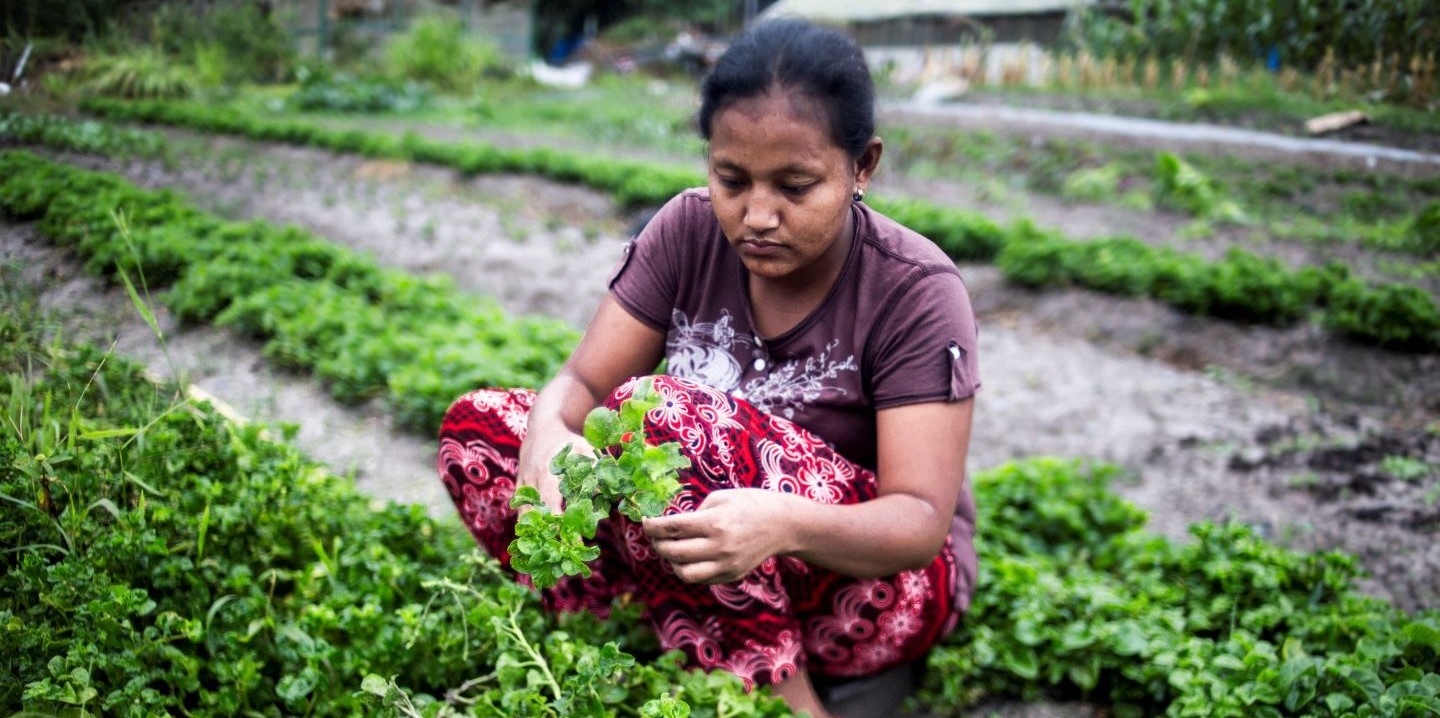Agroecology for sustainable food systems

Agroecology for sustainable food systems
Agroecology for sustainable food systems
The challenge
Small-scale producers, their families and communities, are struggling against hunger and food insecurity caused by unsustainable food systems. An estimated 3 billion people could not afford a healthy and diversified diet in 2017. Poor diets and malnutrition, accompanied by the climate crisis, biodiversity loss, natural resource degradation and ecosystem fragility, are challenging current food systems and require a bold transformation.
The opportunity
Agroecology is a promising integrated and holistic approach to achieving food systems transformation, systemically addressing the issues related to food and agricultural production and commercialization systems within an enabling political environment. Agroecological practices are increasingly adopted by producer organizations, including family farmers, peasants, Indigenous Peoples and traditional communities, to sustainably conserve and protect biodiversity and natural resources, develop knowledge through co-creation and sharing, and improve governance.
Defined by the 10 Elements of Agroeoclogy agroecological approaches empower small-scale producers, in particular women and youth, strengthening their participation in the shaping of sustainable food systems.
Around 60 per cent of all IFAD projects completing between 2018 and 2023 implement agroecological practices at the farm, landscape, market and policy levels. They are often linked to climate change adaptation and mitigation initiatives promoted through IFAD’s Adaptation for Smallholder Agriculture Programme.
Related stories
資產出版器
How agroecology can respond to a changing climate and benefit farmers
Current food systems are at a crossroads. There is a strong need for transforming food production and consumption patterns in a sustainable way. One where farmers adapt and build resilience to the increasing challenges from climate change and where nutritious food is available for all. Agroecology provides one solution towards this transformation.
In Brazil, a “quiet revolution” for rural women makes the invisible visible
In north-eastern Brazil, as in so many other places, rural women's work is often invisible. But a revolution is taking place – and IFAD is a part of it.
What we are reading on food systems
As we approach the UN Food Systems Summit here are some suggested reads on transforming our food systems for people, and planet.
Related news
資產出版器
Agroecology can address food systems failures - new IFAD report
In its first comprehensive assessment of agroecology, the International Fund for Agricultural Development (IFAD) announced today that 60 percent of its projects use practices from this holistic approach to sustainable agricultural production.
IFAD-funded project to help smallholder farmers make the transition to agroecology in Argentina
IFAD, the Government of Argentina and FONPLATA Development Bank have launched a new rural development project to help smallholder farmers transition to more resilient agroecology-based production while also taking advantage of digital technologies to improve their livelihoods and income.
Related blogs
資產出版器
Mainstreaming agroecology in the Asia-Pacific region
Agroecology is a holistic approach that integrates elements of ecology, economy, and society within a food system. It also supports the well-being of small-scale producers, especially in terms of their empowerment and social inclusion. IFAD has a long tradition of supporting agroecology practices throughout Asia-Pacific, especially the Himalayas region.
To achieve the SDGs we must first transform how we feed the world
This year we commemorate, for the second time, World Food Day held under pandemic conditions. The theme is Our Actions Are Our Future. It’s time to ask what actions we must take to build that better future, in which food is produced sustainably and efficiently, providing good nutrition to all, while protecting the environment.
Why land tenure is crucial for sustainable food systems
With nearly half of the world’s population living in the rural areas of low- and middle-income countries, tenure security is fundamental for sustainable development.
Related videos
資產出版器
Empowering rural women with Agroecological Logbooks
The video presents the main results of using the Agroecological Logbook methodology in projects supported by IFAD in Brazil.
Brazil's seed guardians: Securing future biodiversity with the help of the past
Brazil has always been rich in biodiversity. But in the country's semi-arid north-eastern region, extensive ranching, slash-and-burn agriculture, and uncontrolled demand for firewood have led to widespread environmental degradation of the Caatinga biome.
Related publications
資產出版器
Stock-take report on agroecology in IFAD operations: An integrated approach to sustainable food systems
This report presents the results of IFAD’s stock-take on agroecology.